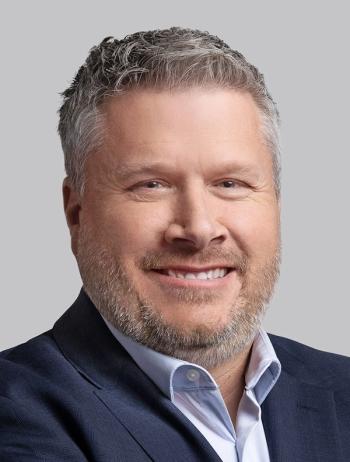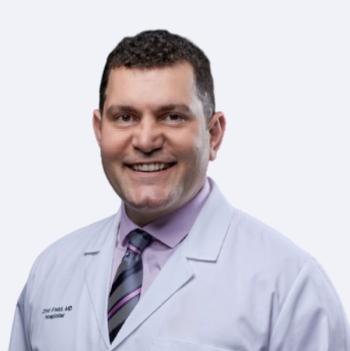
Innovative solutions for tackling the opioid crisis
The skyrocketing number of Americans dying from opioid overdoses has physicians, public health officials and politicians scrambling for ways to stem the epidemic.
Separately, Hsu has developed a dispenser that limits the number of prescribed opioids a patient can obtain at any one time, while ensuring that no one other than the patient has access to the medications. Below are edited excerpts from Medical Economics’ recent interview with Hsu.
Medical Economics: Where did the interest in opioids and in addressing this crisis that our country is facing come from?
John Hsu, MD: It started in 2000 when The Joint Commission talked about pain being the fifth vital sign. I found it to be quite shortsighted and I didn’t agree with it. As the crisis got worse I felt stronger and stronger that the government, the DEA, the FDA were not approaching the disease of addiction in the appropriate manner. I feel that right now the government is treating the symptom of opioid disease and not the cause of opioid addiction. And because of the fact that more people are dying I feel like I have to do something because I think the government is doing something prolonging the disease rather than treating the cause of the disease.
ME: What did you disagree with in the decision?
JH: What I’ve found is there’s no one reason a patient has pain. I think if patients have pain, they also have anxiety and they also have depression. So I think that if we’re going to treat the opioid crisis we need to make a definitive diagnosis that this patient actually has pain as opposed to this patient has pain and anxiety and depression and we’re only using opioids to treat the pain and not the anxiety and the depression.
ME: Describe the background of Quivive.
JH: Actually it’s French. Qui is “who” and live is “live,” so “who lives.” So the tag line for my company is, “who lives to breathe.” So qui vive is a name to help people remember that you have to live to breathe, meaning that you can get treated for pain but you have to live to get treated for the correct reason for having pain.
PODCAST:
ME: How do you hope to accomplish this?
JH: When people take too many pills they have respiratory depression. My company’s goal is to treat the pain and treat the side effect of the opioid-induced respiratory depression. I’m proposing a safer opioid, meaning that I can give these patients the opioid and they won’t die because of functional antagonism. The opioid treats pain by binding to the mu receptor. My drug binds to another receptor that treats the side effect of the opioid, which is respiratory depression. I’m trying to kill pain without killing the patient.
ME: So they get the benefits of the pain treatment without the respiratory depression?
JH: Correct.
ME: Was there an “aha” moment that led you to this?
JH: The big “aha” moment was when I started looking at functional antagonism. My father has been treated for hypertension. He was taking a potassium wasting diuretic and then his potassium dropped so the doctor put him on a potassium sparing diuretic. That is functional antagonism by definition. So I began to think, why can’t we do this for opioids? I said, “let’s treat respiratory depression first and then pain second.”
ME: When did you form Quivive?
JH: About a year ago.
ME: With the idea of developing a marketable product?
JH: No. What I really want is satisfaction of my judgement. That is what is really driving me. I want to make sure that what I’ve thought about can save lives. It’s not about making money or anything like that. It’s about making the right choices to save lives. And that’s why I became a doctor. It comes in part from knowing 3if you do the right thing, good things will happen.
ME: Tell me about the iPill dispenser?
JH: When I talked to the FDA about my idea for Quivive, one of the representatives of the FDA asked me what happens if a patient takes too many [of Quivive’s medications]? What solution do you have for that? And I thought about it and concluded the best thing is to do what hospitals and pharmacies do. They put their opioids in a secure location. They don’t allow patients to take ten pills at once. Why don’t we have that at home? So by decreasing the ability to take a whole bottle of pills I enhance the effectiveness of the Quivive combo product.
The container looks like the case of an iPhone, and if you put your finger on the iPhone to open it and then you point your camera at the box, two pills will come out. You can’t open the iPill. There’s a tamperproof secret sauce. That means that you only get one pill or two pills as prescribed.
ME: Aren’t you worried that addicts would find some way around this?
JH: Let’s say you tried to break it, there is special engineering that will take the opioid in the dispenser and make them one big block.
ME: Although, again, isn’t there the possibility that they would find a way of breaking those apart into pill size units?
JH: And that’s where the Quivive pharma drug will help. If the patient bypasses the tamper-proof design of the iPill they still won’t die because they won’t have respiratory depression because the Quivive pill will still stimulate respiration.
ME: And the timetable for this is similar to Quivive products?
JH: It’s actually much faster. I’ve built the prototype for the iPill. So now I’m just trying to get more money to go through.
ME: What funding sources do you have?
JH: I’m using my savings.
ME: That’s a real depth of commitment
JH: The amount of human suffering that occurs from the opioid crisis is amazing. It hits your heart. So I feel like God put me on earth to do something and if I can do it I’m going to try.
Newsletter
Stay informed and empowered with Medical Economics enewsletter, delivering expert insights, financial strategies, practice management tips and technology trends — tailored for today’s physicians.






